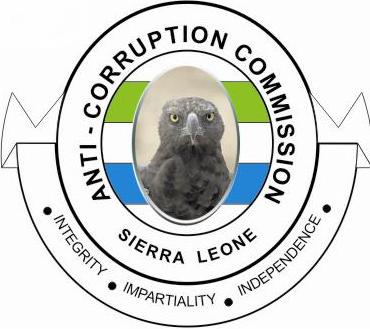By David Yusuf Kabia, Public Relations Assistant, ACC
Encapsulating the need for collective action in the fight against corruption, the United Nations (UN) in 2018 noted that, “Collective action" is a collaborative and sustained process of cooperation between stakeholders. It increases the impact and credibility of individual action, brings vulnerable individual players into an alliance of like-minded organizations and levels the playing field between competitors. Collective action can complement or temporarily substitute for and strengthen weak local laws and anti-corruption practices.”
In Volume 2 Chapter 2 of the Truth and Reconciliation Commission (TRC) Report, corruption was identified as one of the primary reasons for the civil war that “…deprived the nation of its dignity and reduced most people to a state of poverty.” It would be thought that after the T.R.C publicly named and shamed actions by public officials that hurt the dignity and livelihood status of many Sierra Leoneans, caution would have been employed in the management of public resources in order to ensure sanity in the use and enjoyment of same. Unfortunately, corruption continued strengthening its tentacles even with the establishment of the Anti-Corruption Commission (ACC) in 2000.
Collaboration in protecting public resources before the civil war was an expected standard of integrity (but which was absent) among public servants. However, with the establishment of the ACC in 2000, Sierra Leone began the phase of reversing the long-held wrong belief by public servants over the use and management of public resources. That reversal process required the collaborative effort of all-citizens, government and both local and international institutions working around anti-corruption issues to ensure the protection of these resources.
HOW COLLABORATION HAS ADDED VALUE TO THE FIGHT AGAINST CORRUPTION
Given the aforementioned collaborative deficit in fighting corruption, Sierra Leone’s current tremendous successes in the fight against corruption cannot be dissociated from effective collaboration.
The establishment of the Special Anti-Corruption Division within the High Court of Sierra Leone
As a result of the strong political will, and huge collaboration with the Judiciary of Sierra Leone, there is now a Special Anti-Corruption Division within the High Court of Sierra Leone, by Constitutional Instrument No. 4 of 2019.Through this, ACC matters are now heard expeditiously. Before now, this deficit contributed to the slow pace in which matters of the Commission are prosecuted, which in turn affected the number of convictions yearly.
Transparency in Government
Through the Open Government Partnership, which reinforces governments to practice and promote transparency for better governance, the fight against corruption now collaborates with Government through MDAs to ensure public officials are transparent and accountable unlike the past, when activities of government were shrouded in secrecy. This openness has now given the public the needed confidence to request for information from public officials in a bid to deleting corruption by protecting public resources.
Recently, the work of the Open Government Partnership (OGP) Global and the Open Government Partnership (OGP) Africa has set benchmarks on transparency in the discharge of public duties which has brought renewed collaboration between the ACC and the OGP in the fight against corruption.




